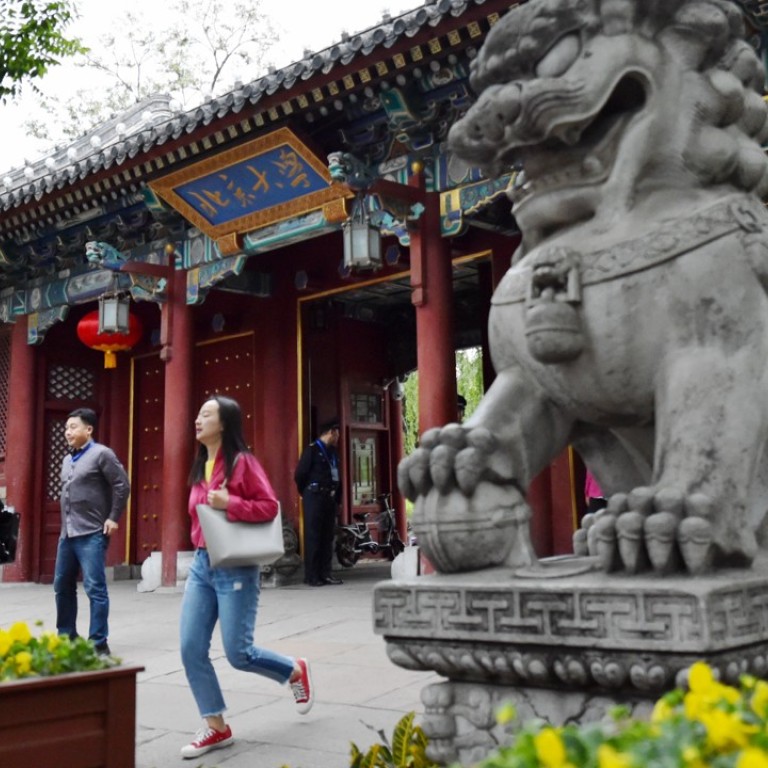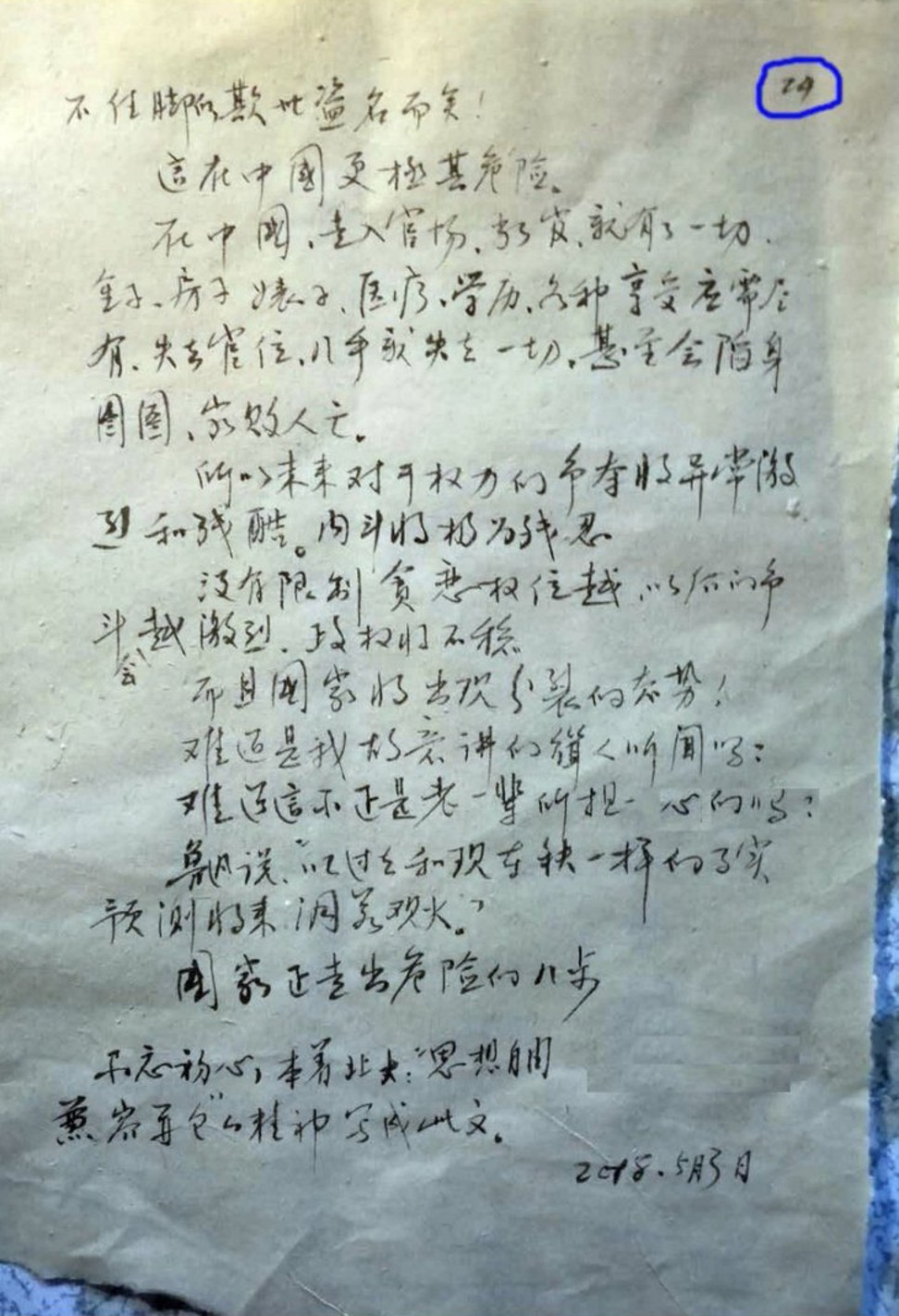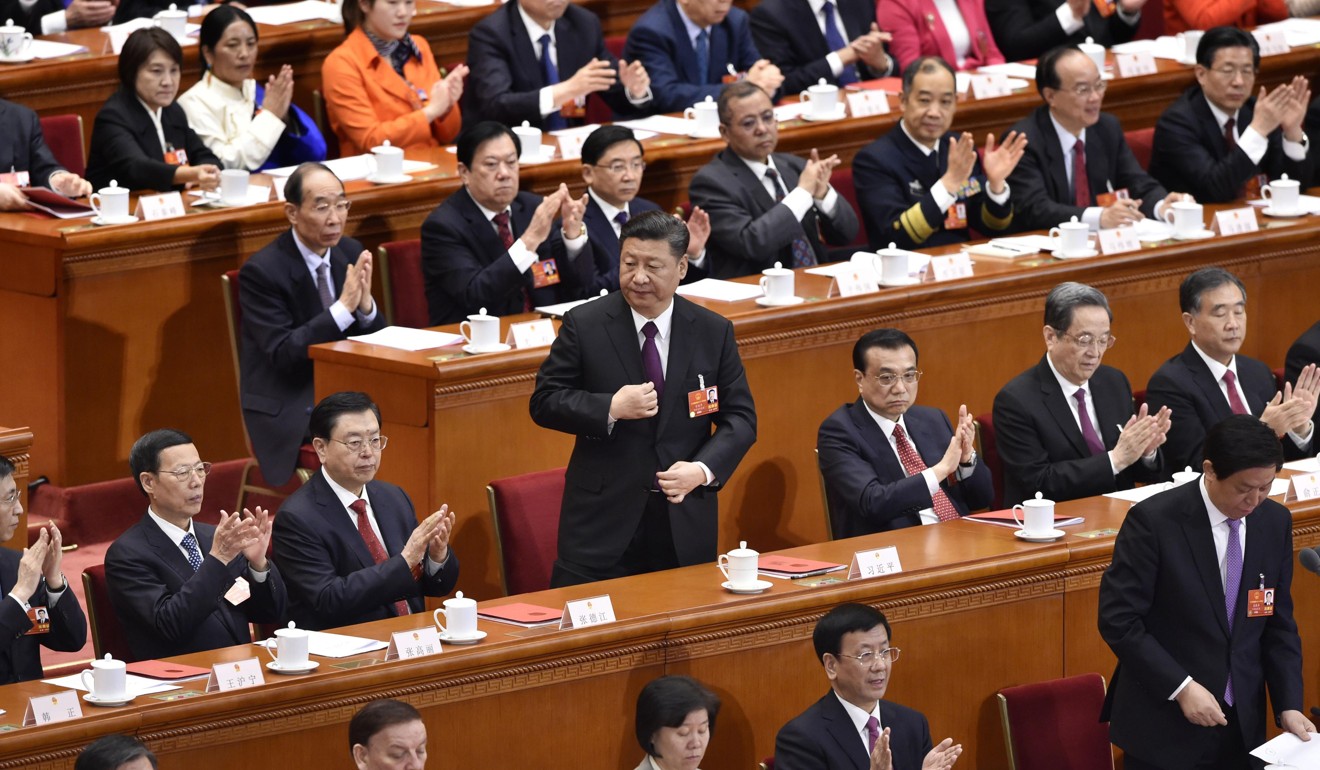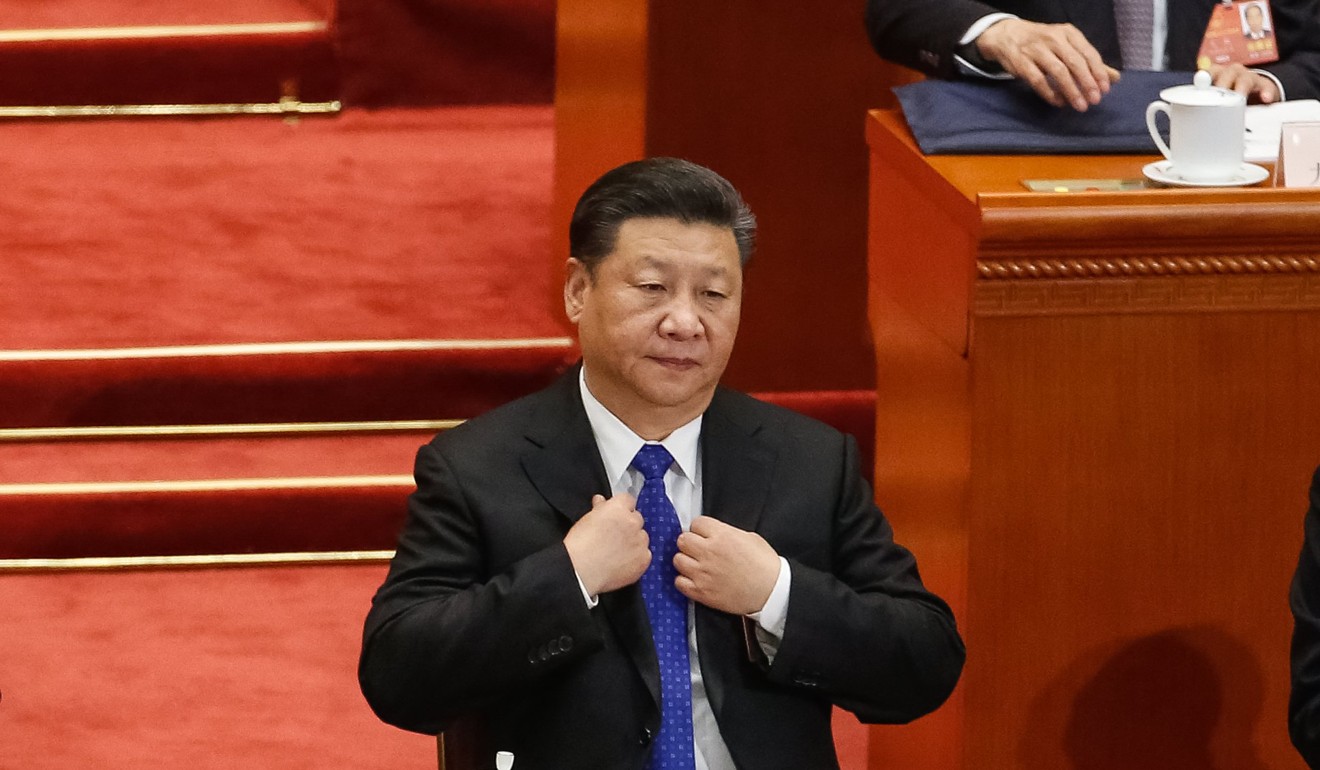
Chinese intellectual Fan Liqin who openly criticised move to scrap term limits speaks out
‘I was making these points on behalf of some of us,’ says liberal thinker, whose 24-page article was put up at the Peking University campus this month
A liberal intellectual who openly criticised Beijing’s decision to remove the term limit on President Xi Jinping has spoken out for the first time since his article was put up on the campus of China’s top university earlier this month.
While the article was censored on the mainland, it has been circulating on Chinese social media for the past two weeks.
The controversial move to scrap the term limit and allow Xi to stay in power beyond 2023 – a change that was made to the constitution in March – sparked a huge backlash among China’s liberal thinkers, even though the ruling Communist Party insisted it was widely supported by the public.
Despite the heavy censorship, many of them have found ways to express their concerns and criticism.
But few went as far as Fan Liqin, who was educated at prestigious Peking University. His article – which was publicly displayed on the Beijing campus on May 4, a sensitive date marking a student-led political movement – sent shock waves through intellectual circles after he questioned the decision and warned against the danger of a cult of personality around the president and an over-concentration of power.

It was signed off by Fan, who is in his 70s and well known among intellectuals, and he confirmed for the first time to the South China Morning Post on Wednesday that he had written the piece.
“Thanks to everyone for their encouragement, I was making these points on behalf of some of us,” he said. “This is what people of my generation ought to do … I’m well, no one is troubling me. I’m just tired and want to rest.”
In the 24-page article, Fan condemned the revision that ended term limits on the presidency and vice-presidency and added Xi’s name to the constitution.
“Removing the term limits is a fundamental denial of the 1982 constitution,” Fan wrote. “It’s a challenge to the system and to the people.”
Deng Xiaoping’s eponymous theory was added to the constitution only two years after his death.

“Frankly speaking, Xi Jinping is building up a personality cult … He’s the first leader to name a ‘guiding principle’ after himself since Mao Zedong,” Fan wrote.
Citing events from the Mao era including the Cultural Revolution, a decade of violence and upheaval that began in 1966, Fan wrote that a personality cult around the leader would lead to great tragedy for China and the Chinese people.
“I’m already over 70 – I’m a survivor of hardships, I never dreamed that I’d see a leader building up a personality cult again in my lifetime,” he wrote.
Last month, Xi reportedly told foreign dignitaries and Chinese officials that he was “personally opposed” to lifelong rule, adding that critics had “misinterpreted” the constitutional amendment.

Fan, who was a biology student at Peking University, was known for opposing the Red Guard leaders supported by Mao during the Cultural Revolution, for which he was tortured by student rebels.
After the decade of mayhem, which only ended with Mao’s death in 1976, Fan worked for state-owned investment company Kanghua, and for the China Disabled Persons’ Federation, a semi-official organisation.
His article was put up on campus on May 4, the anniversary day of Peking University – known as “China’s Harvard”. The date was set to commemorate the May 4 Movement in 1919, which was led by students and has become a symbol for patriotism and the pursuit of democracy and science. The university was a base for the student organisers of the movement.
“We are, after all, from Peking University – not like others,” Fan wrote. “[Peking] should not be like other universities.”
Although the constitutional amendment drew a backlash from the international community and some in China, such open criticism is rarely seen amid heavy censorship and fears of retribution.
But a week before legislators passed the amendment, Li Datong, a former editor with state-run China Youth Daily, wrote an open letter calling for the proposal to be voted down. Li, 66, said his comments represented an unspecified group of “like-minded people”, which he described as professors, business executives and former officials.

